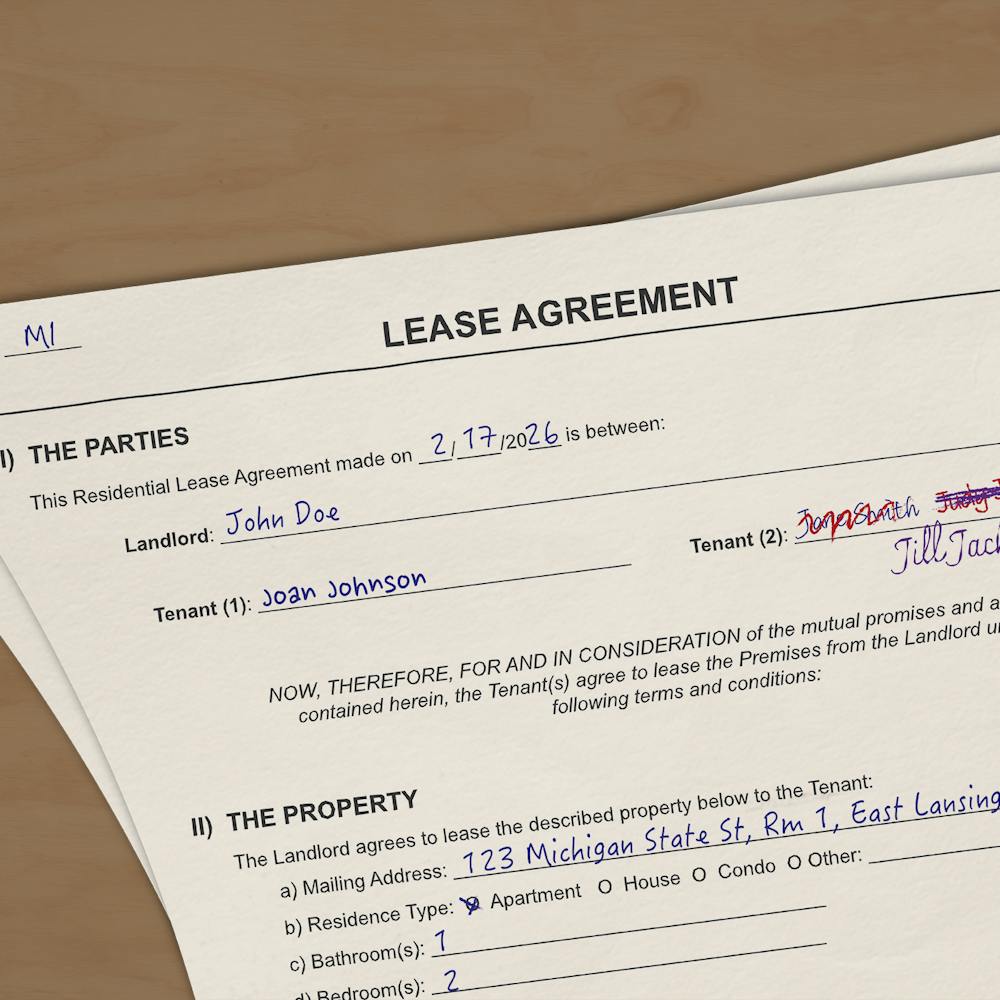After a handful of Michigan cities successfully decriminalized marijuana and some Michigan activists are pushing statewide decriminalization, local officials and students still aren’t sure whether East Lansing will follow suit.
At least four Michigan cities already have adopted decriminalization ordinances for recreational marijuana.
In Detroit, anyone 21 years or older can have marijuana on private property, and police cannot confiscate it or arrest them. In Grand Rapids and Ann Arbor, individuals caught with up to an ounce of marijuana will receive a ticket instead of jail time.
Under a Republican-controlled state legislature, decriminalizing marijuana statewide could face some resistance.
December 2012 changes to medical marijuana laws implemented tighter restrictions on registry cards and marijuana sellers. Buyers must provide ID to receive a registry card, anyone convicted of a felony cannot be a provider and sentencing guidelines became stricter.
However, Brad Forrester, Cheboygan program director of Michigan’s chapter of the National Organization for the Reform of Marijuana Laws, predicts marijuana will be decriminalized in Michigan as early as 2016.
Forrester said with Michigan’s high unsolved murder rate, focus on marijuana arrests is “a gross misappropriation of police resources.”
Police solved 69 percent of 40,831 controlled-substance violations reported in 2011. Only 24 percent of 580 reported murders were solved, according to Michigan State Police’s 2011 report.
Under East Lansing city ordinances, anyone unlawfully in possession of marijuana will be charged with a misdemeanor. Consequences for first-offense violations include serving up to 45 days of community service, a fine up to $25, receiving substance abuse treatment or any combination of the three. Decriminalizing marijuana means no more arrests, misdemeanor charges or fines.
East Lansing Mayor Pro Tem Nathan Triplett said although the council has discussed decriminalizing marijuana before, an ordinance has yet to come before the council. He said smaller communities often have a difficult time passing ordinances that conflict with state law.
“The challenge is that, proactively speaking, (it is) very difficult for one local community to act when the possession and use of marijuana remains a state and federal crime,” he said.
Triplett said adopting conflicting laws — one that decriminalizes marijuana against the original state law that criminalized it — could put East Lansing residents and police in a precarious position.
Environmental economics and policy junior Ellen Hendrickson said she feels marijuana possession is too harshly punished, and decriminalizing it would help students financially.
“I know so many people who have had to go to probation and spend so much money because they have to pay each time they are tested, and students are already so financially strained,” she said. “That’s something they aren’t really going to ask their parents for help with because they don’t want them to know about it.”
Forrester said there’s always the possibility students might show up for class less or even drop out.
But he said there are no statistics or research to show how decriminalizing marijuana will affect students, so results are hard to predict.
MSU police Sgt. Shaun Mills said officers frequently come across students using marijuana on and off campus. According to MSU police 2012 annual report, police made 362 drug-related arrests in 2011.
“It’s a problem if they’re using it — it is (against) the law,” Mills said.
Support student media!
Please consider donating to The State News and help fund the future of journalism.
Discussion
Share and discuss “Students discuss decriminalizing marijuana” on social media.







